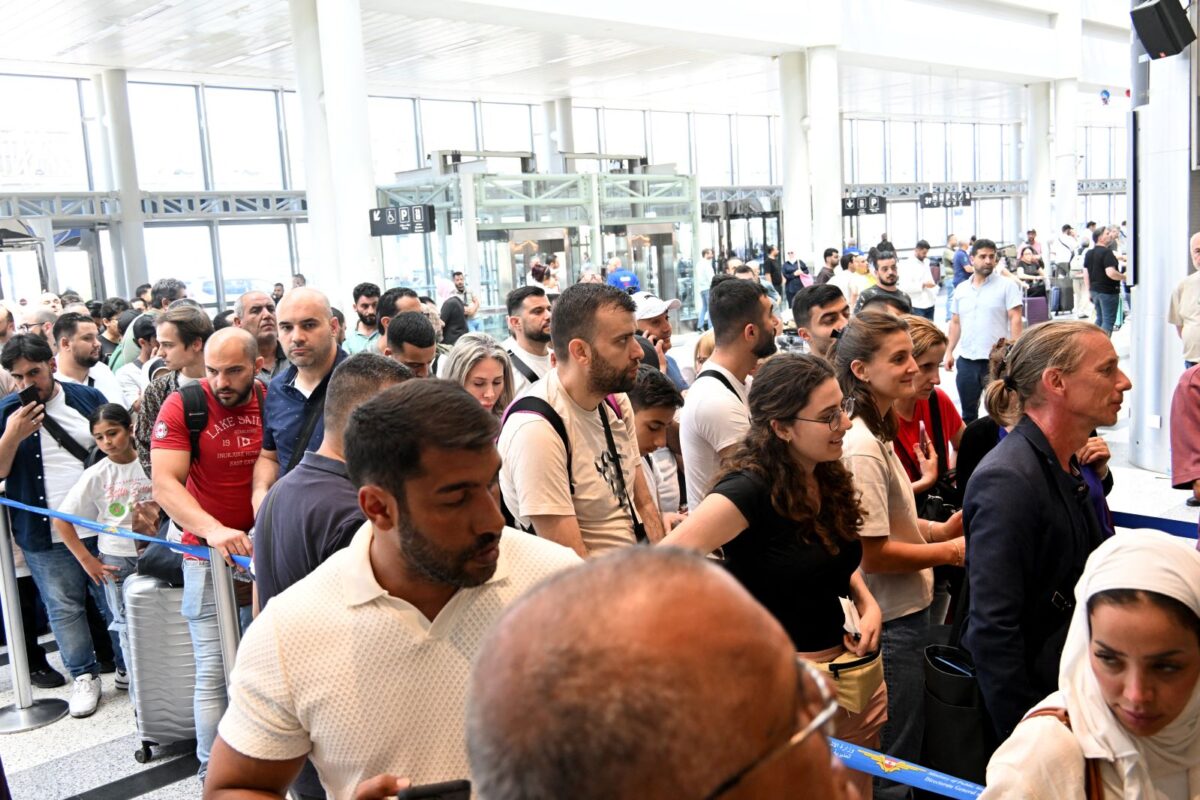
Lebanon is on the edge as Iran and Israel exchange blows with the big question being will it get drawn into the conflict
As Iran and Israel go to war following Israel’s attack on Iran in the early hours of Friday, a strike that eliminated several senior military and Revolutionary Guard leaders, as well as nuclear scientists, all eyes are turning toward Lebanon.
The big question is whether it can avoid being pulled into a conflict that’s growing by the day and threatening to become a full-blown regional war.
Hezbollah’s position this time around?
Hezbollah, which is closely tied to Iran and is often described as Iran’s “executive arm” in the region, kept its response limited to strong statements.
In two messages, one from its media department and another from its deputy leader, Naim Qassem, condemned the attack and expressed solidarity with Iran, without signaling any further action.
This comes amid growing worries about whether solidarity will remain just in words, given that Israel previously threatened to attack Lebanon if attacks were launched from its territory.
Lebanese Government Takes Firm Stance
Lebanon’s official response was clear from the start. President Michel Aoun and Prime Minister Najib Mikati both condemned Israel’s attack on Iran and stressed the danger of escalation for the region.
This was further demonstrated by a high-profile security meeting held on Saturday at Baabda Palace, where officials reviewed the growing conflict’s potential impacts on Lebanon.
According to the official statement, several measures were put in place to help keep the country stable and protect civil aviation and movement.
Some political sources say there are ongoing contacts with Hezbollah to make sure it sticks to the official Lebanese position and doesn’t get drawn into the conflict in Iran’s defense.
Hezbollah’s own messages reflect this cautious approach
In its two statements, Hezbollah Leader, Naim Qassem stood by Iran and condemned Israel’s attacks as a serious escalation but kept the overall response limited to solidarity and condolences, without adding any hints or promises of direct action.
This stands in contrast to previous moments when it raised the possibility of a collective or unified response under the policy of “unity of the fronts.”
The growing showdown is fueling worries about its potential spillover into Lebanon and affecting the lives of people in the country as well as those stranded abroad due to travel disruptions.
Beirut Airport, which temporarily halted operations due to growing tensions, is now back up and running.
Lebanon’s main priorities amid growing tensions are to keep stability and essential services up and running, especially at the airport, while staying vigilant against any Israeli moves to exploit the situation, particularly in the south.
Authorities are also focusing on protecting consumers from unfair price hikes and ensuring continued dialogue among political groups to manage growing pressures, including international disputes over extending the UN peacekeeping force’s mandate.
Following the reopening of the airport under extensive logistical and organizational measures to keep operations safe. The Minister of Public Works and Transportation, Fayez Rassamni, stressed there’s no plan to close the airport again except in the event of an unforeseen incident.
Middle East Airlines is meanwhile working to bring back stranded Lebanese from Istanbul and Sharm el-Sheikh as nearly 600 people are stranded and calling for a safe return home.
Iran’s shift and what it means for Lebanon
In an interview with NOW, Tarek Saade, assistant lecturer of political science at Balamand University, shared his insights on the recent developments in the region.
“If you asked me about this a little over a year ago, I’d have said Israel wasn’t really in a position to pull off such deep strikes against Iran’s core infrastructure like we’ve just seen. Back then, Iran still had a strong network of allies and had built multiple layers of defense around its nuclear program, all while keeping the pressure on Israel.” Said Tarek.
But things have shifted dramatically. Now, Iran is facing direct attacks on its home turf, and it’s not just about politics or power anymore, it’s about survival, according to Tarek.
“That’s why they’re forced to respond more aggressively to defend their very existence,”he added.
According to Saade, it’s a sensitive moment with Lebanon already wrestling with its own political and economic crises, and now it’s sitting right on the edge of a conflict that’s growing bigger by the day without much control over what happens next.
The Israel-Iran conflict puts Lebanon in a really tough spot. On one hand, Lebanon is already struggling with political instability, economic hardship, and social tensions.
On the other, this regional war risks dragging Lebanon deeper into conflict or at least making the security situation much more fragile.
The country could face increased threats from Israeli strikes, possible spillover violence, or pressure on groups like Hezbollah to get involved.
So overall, Lebanon’s stability and safety are under strain, making an already difficult situation even more unpredictable and risky.
Lebanon’s Economy Faces New Setbacks
Lebanon’s economy was just starting to recover from last year’s war, with hopeful signs like rising retail sales and a promising tourism season.
The World Bank even predicted almost 5 per cent growth with growing political stability and international support. But the sudden outbreak of the Israeli-Iranian war has thrown that optimism into doubt. Experts say the real growth was likely closer to 2-3 per cent, and now the conflict brings serious risks.
If the war is short, Lebanon might manage limited damage and still see some economic activity. But a prolonged conflict or Lebanon’s direct involvement could be devastating, especially for tourism and investment. Meanwhile, regional instability is expected to slow down much-needed reforms, making economic recovery even harder.
Rodayna Raydan is a Lebanese-British journalist. You can follow her on Twitter @Rodayna_462
The views in this story reflect those of the author alone and do not necessarily reflect the beliefs of NOW.








